Good evening. Read the Monday, January 10, 2022 edition of Today in Slovakia to catch up on the main news of the day in less than five minutes. We wish you a pleasant read.
Schools and culture reopen
Thousands of children returned to kindergartens, primary and secondary schools after Christmas school holidays, which officially started on December 20. Some schools closed even earlier, following the decision of regional hygienists stating that schoolchildren should instead switch to distance education due to the risk of infection.
Starting on Monday, the school traffic light system is in place again. Based on the current valid rules, if there is an infected pupil in the classroom, the principal will decide on closing the entire classroom. The only exception to self-isolation will be for children vaccinated against Covid or those recently recovered from Covid.
An entire school may be closed in special cases, but this will depend on the discussion with regional hygienists.
Schoolchildren are required to wear masks during school, while their parents can test them with antigen tests.
After quite a long break cultural venues, such as theatres, cinemas and concert halls, reopened on Monday as well, under the OP regime, meaning that they can welcome visitors who are fully vaccinated and recovered from Covid in the past 180 days. Several personalities active in culture have criticised the condition of allowing only 50 people.
Following the criticism, the cabinet approved at its January 10 online session some changes to the conditions under which mass events, including cultural ones, can be held. They divided the events into three groups based on the risk of infection they pose, and increased the limits.
Some representatives of the cultural sphere consider this insufficient, calling for more systemic changes.
At the same time, the night curfew ended on Sunday, meaning that people will be allowed to go outside after 20:00 as well. The change affects several shops and services (including pubs and restaurants), since they can remain open after this hour. The national emergency will remain in place until February 23, meaning that gatherings of more than six people are still not allowed, for example.
For a deeper insight into current affairs, check out our Last Week in Slovakia report published earlier today. You can sign up for the newsletter here.
More on the coronavirus and vaccination
855 people were newly diagnosed as Covid positive out of 4,490 PCR tests performed on January 9. The number of people in hospitals is 2,117; and 27 more deaths were reported on Sunday. The vaccination rate is at 50.17 percent, 2,759,539 people having received the first dose of the vaccine. More stats on Covid-19 in Slovakia here.
Labs in Slovakia have confirmed 34 more Omicron cases in Slovakia. As a result, there currently are 54 confirmed cases infected with this variant.
It has been possible to choose the exact date and time when registering for the Covid vaccine shot via the Korona.gov.sk website since the end of last week. In the case of children, the date and time can be chosen only for centres that vaccinate children aged five to 11, and just for the first dose.
Slovakia has signed a contract for 340,000 doses of the Covid vaccine by the Novavax company, expected to arrive to the country in the first six months of the year.
General prosecutor criticised for trip to Russia
Not long after his criticism of the Defence Cooperation Agreement with the United States, news emerged that General Prosecutor Maroš Žilinka will travel to Russia to attend the ceremony on the occasion of the 300th anniversary of establishing the Russian prosecutor’s office.
As the Denník N daily reported, he will be the only head of the prosecutor’s office from the Visegrad Group (V4) countries to attend the celebrations in Moscow on January 11-13. It is not clear whether there will be top prosecutors from any other EU country, according to the daily.
The trip has been criticised by several coalition MPs, including Juraj Šeliga of Za Ľudí, who even presented a list of people from Czechoslovakia who ended up in the Soviet gulags between the years 1945 and 1960, as well as a group of Slovak MEPs. They called on the general prosecutor to cancel the trip.
The General Prosecutor’s Office does not want to comment on the political statements.
This is not the first time Žilinka will meet with Russian General Prosecutor Igor Krasnov, who is on the EU sanctions list for violating human rights. The two met in July 2021 in Moscow, and Žilinka even said that they would like to deepen their cooperation, Denník N wrote.
If you like what we are doing and want to support good journalism, buy our online subscription. Thank you.
Picture of the day
Žilina-based carmaker Kia Slovakia wrapped up the production of its Sportage model of fourth generation in the first week of January 2022. The model has been manufactured in the plant since late 2015, and has become the most produced generation of a model in the plant’s history.
Feature story for today
Last year saw a major political crisis in Slovakia, which resulted in the resignation of the prime minister. 2022 is unlikely to see a similar event, political observers agree. Even so, this may still turn out to be a turbulent year on the Slovak political scene.
Political analysts see Eduard Heger's position as prime minister as stable and the survival of the ruling coalition as very likely, given that it is in the interests of all those involved. Early elections are thus an unlikely development; but in the autumn of 2022 voters will still be asked to vote in two elections. These will hint at the mood in the country and possible future alliances at national-level politics.
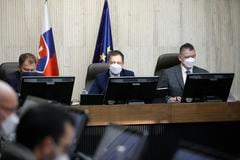
In other news
The opposition party Smer, led by former three-time prime minister Robert Fico, plans to summon a non-scheduled parliamentary session and wants to organise a referendum on whether people agree with “placing American military bases in the territory of the Slovak Republic.” Meanwhile, Defence Minister Jaroslav Naď (OĽaNO) commented on the criticism of the agreement, saying that if just one of the threats presented by critics comes true, he will resign and never run for public position again.
Special prosecutor Daniel Lipšic cancelled the decision on bringing charges against 10 local councillors from the village of Varín (Žilina Region), who were said to express sympathies towards a movement aimed at suppressing fundamental rights and freedoms. The councillors in question disagreed with changing the name of a street, named after Jozef Tiso, president of the Nazi-allied wartime Slovak state.
The police have launched several criminal prosecutions linked to the case of an 11-year-old girl who was attacked and abused by a group of older teenagers in the village of Miloslavov (near Bratislava) in early January. Meanwhile, a crisis team comprised of psychologists came to the local school, to discuss with teachers what has happened and how to handle bullying.
Ján Mičovský, former agriculture minister, is leaving the OĽaNO caucus, saying that he has lost trust in the movement and its fight against corruption. He has been critical of the practices of his successor Samuel Vlčan, who has recalled several fighters against corruption, as well as the change in attitude of Igor Matovič and the failed promises of PM Eduard Heger. (Denník N)
Bratislava launched the new parking system in the first three zones today – Dvory 4, Tehelné Pole and Krasňany. People parking in these zones can ask for their parking card online; an annual parking fee for residents amounts to €39 per vehicle. Visitors will be able to park in the zones after paying an hourly fee; they can also use a visitor or bonus parking card, the city announced.
Disinformation is an important security threat, according to the recent police report on disinformation. The highest number of disseminated hoaxes in 2021 concerned Covid-19, and appeared in the online space particularly in the spring and the autumn, i.e. during the second and third pandemic wave.
Industrial production in Slovakia grew by 4.3 percent year-on-year, after two months of decline, exceeding pre-pandemic values by almost 7 percent. Thirteen of 15 manufacturing activities recorded positive numbers, according to the Statistics Office.
The lack of engine drivers has resulted in changing the train timetable in western Slovakia, which will be in place until Sunday. Dozens of trains will not be dispatched on the routes between Trnava – Bratislava – Kúty, Pezinok – Bratislava – Malacky, Bratislava – Komárno, and Bratislava – Senec – Nové Zámky/Galanta, the state-run passenger railway carrier ZSSK announced.
More on Spectator.sk:


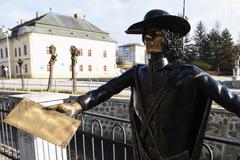
If you have suggestions on how this news overview can be improved, you can reach us at editorial@spectator.sk.



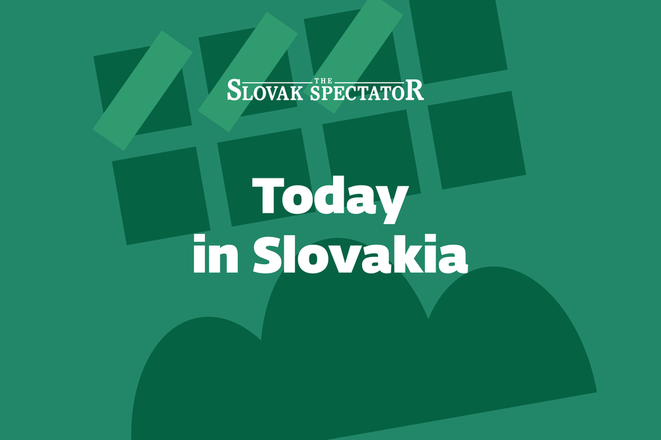 (source: SME.sk / Hej,ty)
(source: SME.sk / Hej,ty)
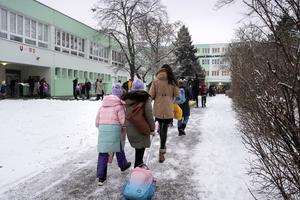
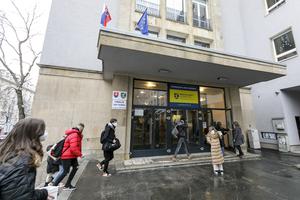
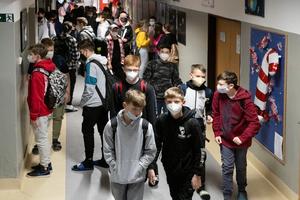
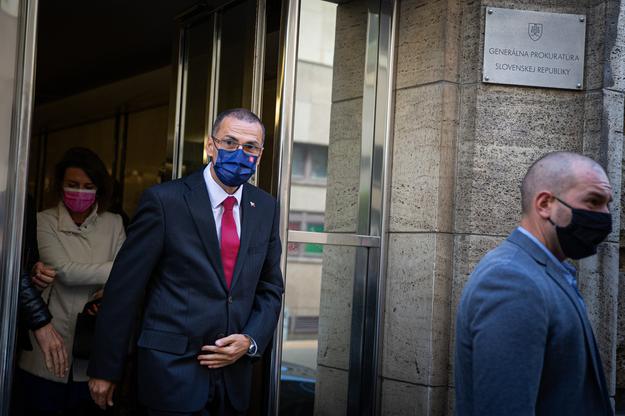 General Prosecutor Maroš Žilinka (source: SME)
General Prosecutor Maroš Žilinka (source: SME)
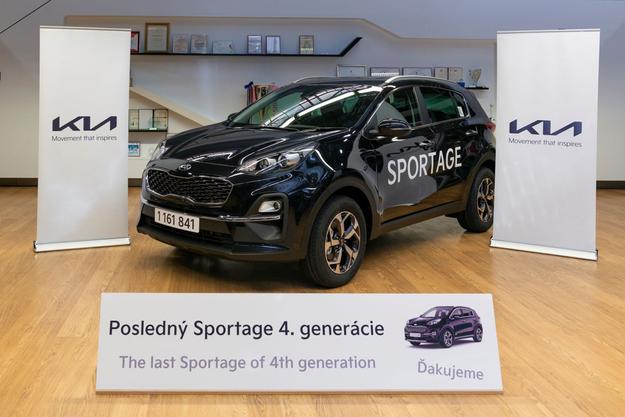 The last car model Kia Sportage, fourth generation, manufactured in Žilina. (source: Courtesy of Kia Slovakia)
The last car model Kia Sportage, fourth generation, manufactured in Žilina. (source: Courtesy of Kia Slovakia)